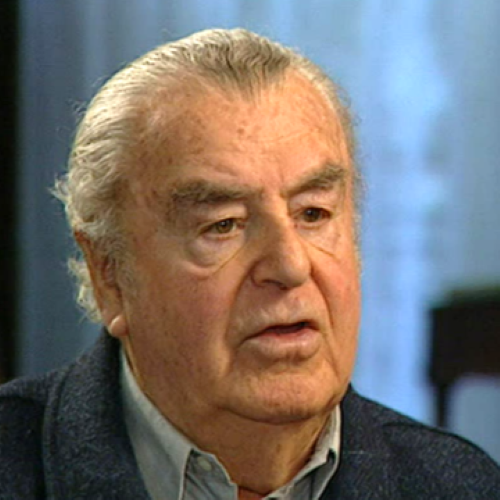Jean-Pierre Vernant
Introduction
Jean-Pierre Vernant stands as a towering figure in the world of classical scholarship, known for his groundbreaking contributions to the study of ancient Greek mythology, religion, and philosophy. Born in 1914 and orphaned during childhood, Vernant’s personal hardships helped shape a unique intellectual depth and resilience. He excelled in philosophy early on, earning top honors in the French agrégation in 1937. Initially focused on Enlightenment thinkers like Diderot and philosophical notions from Plato, Vernant’s intellectual journey took a definitive turn when he came under the guidance of Louis Gernet and Ignace Meyerson. These mentors helped steer him toward the anthropological and psychological dimensions of Greek antiquity. His scholarship made ancient Greece not just accessible, but deeply relevant, capturing the imagination of global academic circles.
Area of Expertise
Jean-Pierre Vernant’s academic focus was rooted in ancient Greek mythology and philosophy, but his true innovation was in how he approached these subjects. He moved beyond traditional philology to understand Greek culture through an anthropological and structuralist lens. For Vernant, myth wasn’t merely a collection of old stories—it was a cultural language, a system of meaning that informed Greek political life, religious practices, and philosophical inquiry. His analysis often revealed a Greece far more complex and turbulent than classical images of order and balance. From rituals and sacrificial customs to themes of death and identity, Vernant exposed the contradictions and tensions at the heart of Greek civilization. He did not study myths in isolation but explored how they interacted with social institutions such as marriage, warfare, and governance. His holistic method examined how Greek rationality emerged in dialogue with deeply embedded religious and cultural traditions.
Books & Publications
Jean-Pierre Vernant authored a body of work that reshaped classical studies, each text offering new perspectives on ancient Greek life. His 1965 book Myth and Thought among the Greeks marked a turning point in mythological studies, lifting Greek myths from narrow academic constraints and exploring their connections to diverse spheres like religion, art, science, and politics. It presented Greek mythology as a dynamic force shaping individual and collective identity in ancient society.
His 1980 work Myth and Society in Ancient Greece further deepened this vision, illustrating how societal structures were reflected and reinforced in myths. Topics such as slavery, death, and ritual hunting were explored in ways that underscored their cultural and symbolic weight. The text is often seen as a continuation of the theoretical foundations laid in Myth and Thought, enriching the broader discourse on Greek identity and political systems.
In The Origins of Greek Thought, Vernant attempted a concise but far-reaching synthesis, offering a personal reflection on how Greek rationality developed within its unique environmental and social setting. It showed his commitment to linking intellectual history with material conditions, anchoring abstract ideas in the lived experience of ancient peoples.
Collaborating with Pierre Vidal-Naquet, Myth and Tragedy in Ancient Greece took the conversation into the realm of drama, arguing that Greek tragedies were not merely theatrical entertainment but vehicles for societal reflection. Another notable work, The Universe, the Gods, and Men, distilled his scholarly insights into accessible retellings of Greek myths, offering readers a direct encounter with the narratives that formed the foundation of Greek thought.
His collected essays and later works like La Traversée des frontières traced the intersection of his personal life, his political commitments, and his scholarship. These texts illustrate how his time in the French Resistance and his philosophical grounding influenced his exploration of boundaries—between myth and politics, between life and death, and between past and present.
Research & Contributions
Jean-Pierre Vernant’s scholarly approach broke new ground by applying structuralist theory, particularly influenced by Claude Lévi-Strauss, to classical studies. Through this methodology, he uncovered deep-seated symbolic oppositions and narrative structures in Greek myths, revealing how they operated as cohesive systems that mirrored Greek social and political life. One of his significant contributions was the analysis of the Hesiodic myth of races, in which he used structural logic to understand the development of historical consciousness in Greece.
His interest in death, sacrifice, and divination illuminated how these concepts functioned within ancient Greek society not just religiously, but politically and philosophically. He showed how the Greek perception of death was intimately tied to identity, community, and the state, thereby connecting the metaphysical with the civic. Vernant’s analysis of sacrificial practices revealed them to be moments of social tension and symbolic resolution, essential to maintaining order within Greek city-states.
Vernant’s work also reshaped understandings of the origins of democracy, framing it within a context where myth, ritual, and emerging rationality coexisted and competed. He emphasized the transformative role of tragedy and public ritual in creating collective awareness and identity among the Greeks. His role as a teacher was equally impactful. At the Collège de France and the Centre de recherches comparées sur les sociétés anciennes, he nurtured a generation of scholars who extended his interdisciplinary legacy across the globe.
Awards & Recognitions
Jean-Pierre Vernant received numerous accolades that acknowledged his intellectual brilliance and civic courage. Among the most prestigious was the CNRS Gold Medal in 1984, France’s highest scientific honor, awarded for his contributions to the human sciences. He was also honored by the American Academy of Arts & Sciences with the Award for Humanistic Studies, highlighting his international influence.
His life as a member of the French Resistance added a layer of moral authority to his academic pursuits. Known as “Colonel Berthier” during World War II, he was later named a Compagnon de la Libération, one of France’s most esteemed honors. His decorations included the Légion d’honneur and the Ordre national du Mérite, marking his dual legacy as both a scholar and a patriot. He also received honorary degrees from esteemed institutions including the University of Oxford, the University of Chicago, and the University of Crete.
Social Media Profiles
Jean-Pierre Vernant passed away in 2007, a period before the digital age transformed academic visibility through social media. While he himself never maintained any online presence, his legacy is preserved through a vast digital footprint. Universities, scholarly communities, and readers continue to engage with his works through online forums, academic databases, and digital libraries. His books are widely cited and studied in classics and anthropology departments around the world, ensuring that his influence remains vibrant in the digital era.
Bibliographic Sources
American Academy of Arts & Sciences. (n.d.). Jean-Pierre Vernant, literary critic and scholar of Greek myths. Retrieved from https://www.amacad.org/person/jean-pierre-vernant
Myth and society in ancient Greece : Vernant, Jean Pierre. (n.d.). Archive.org. Retrieved from https://archive.org/details/mythsocietyinanc00vern
Vernant, J.-P. (n.d.). Myth and Thought Among the Greeks. Goodreads. Retrieved from https://www.goodreads.com/author/list/41620.Jean_Pierre_Vernant
Jean-Pierre Vernant. (n.d.). Wikipedia. Retrieved from https://en.wikipedia.org/wiki/Jean-Pierre_Vernant
Vernant, J.-P. (n.d.). Works by Jean-Pierre Vernant. LibraryThing. Retrieved from https://www.librarything.com/author/vernantjeanpierre
The chair. (n.d.). Collège de France. Retrieved from https://www.college-de-france.fr/en/chair/jean-pierre-vernant-comparative-study-of-ancient-religions-statutory-chair/events
Biography and publications. (n.d.). Collège de France. Retrieved from https://www.college-de-france.fr/en/chair/jean-pierre-vernant-comparative-study-of-ancient-religions-statutory-chair/biography




